Fact or Fiction? The Truth behind Common Nutrition Myths
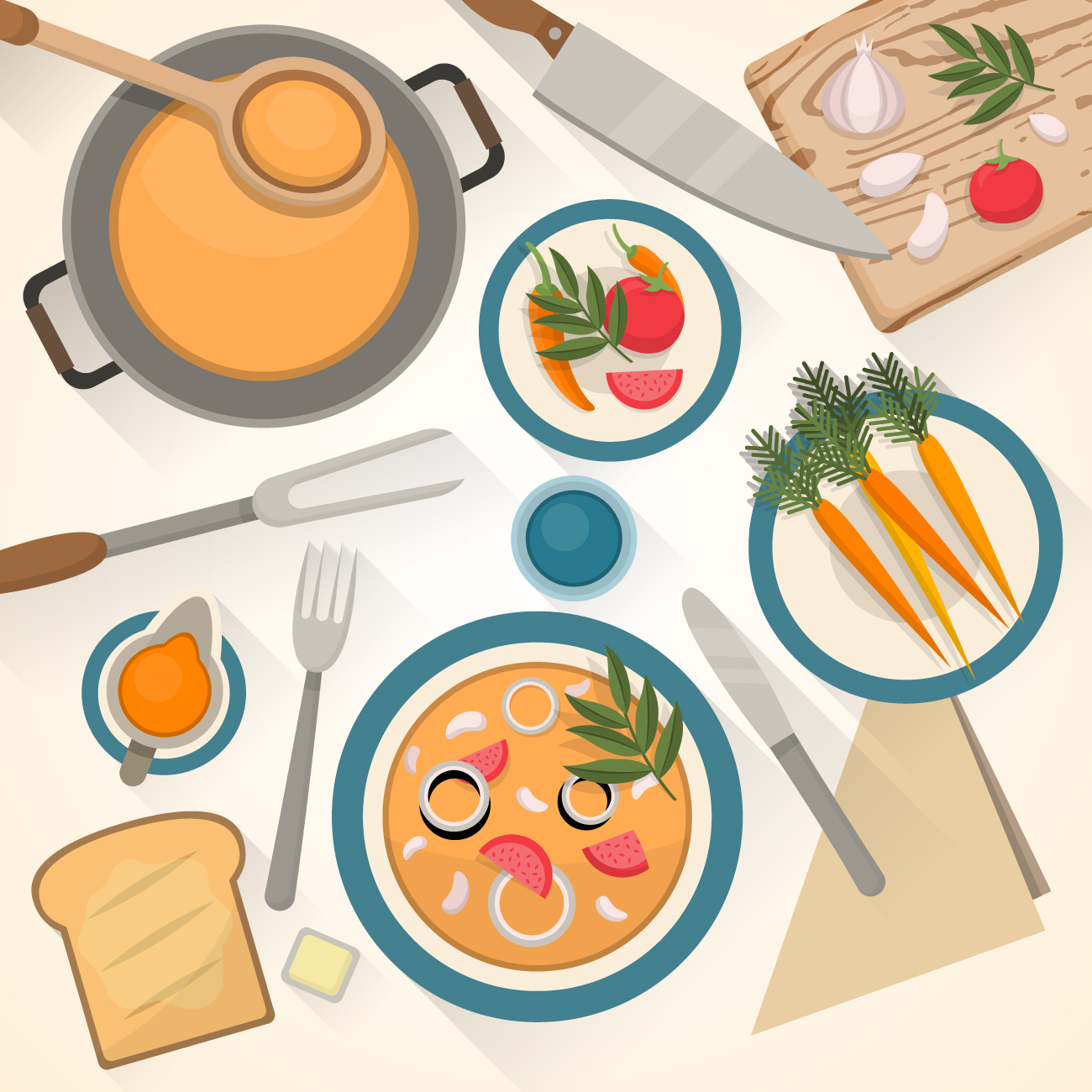
You’re probably all too familiar with these common nutrition, fitness, and health philosophies. Let’s examine whether or not there’s any science to back up these claims.
Frozen or canned fruits and vegetables are not as nutritious as fresh. Fact or fiction?
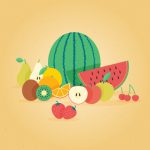 This is fiction! When it comes to buying fruits and vegetables, many factors play a role in which types consumers choose, including nutritional value. The Academy of Nutrition and Dietetics says that no matter what form they take (fresh, frozen, or canned), fruits and vegetables are good-for-you foods that can be enjoyed at any time. Buying fresh produce that’s in season and/or sourced locally is always great, but don’t think you’re selling yourself short by choosing the frozen or canned types. Make sure to check the labels on frozen or canned produce, though, because they may contain added sugar or salt. Your best bet is to buy canned produce that says “No Added Salt” or “No Added Sugar” on the label.
This is fiction! When it comes to buying fruits and vegetables, many factors play a role in which types consumers choose, including nutritional value. The Academy of Nutrition and Dietetics says that no matter what form they take (fresh, frozen, or canned), fruits and vegetables are good-for-you foods that can be enjoyed at any time. Buying fresh produce that’s in season and/or sourced locally is always great, but don’t think you’re selling yourself short by choosing the frozen or canned types. Make sure to check the labels on frozen or canned produce, though, because they may contain added sugar or salt. Your best bet is to buy canned produce that says “No Added Salt” or “No Added Sugar” on the label.
Eating after 8 p.m. causes weight gain. Fact or fiction?
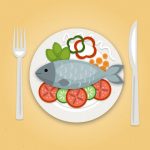 This is fiction! Eating after 8 p.m. doesn’t mean you’ll gain weight. Your total calorie intake and expenditure (how many calories you burn) matter most when it comes to healthy weight management. However, limiting late-night snacking could help you avoid unwanted weight gain, especially if the evening is your prime snacking time or you have food cravings that hit later in the day. In these cases, “closing” your kitchen at a certain time may be a viable option. As long as you choose small portions of healthy foods to eat at night, you can maintain a healthy weight, especially if you exercise regularly. If you feel hungry before bed, having a small snack may actually help you sleep better.
This is fiction! Eating after 8 p.m. doesn’t mean you’ll gain weight. Your total calorie intake and expenditure (how many calories you burn) matter most when it comes to healthy weight management. However, limiting late-night snacking could help you avoid unwanted weight gain, especially if the evening is your prime snacking time or you have food cravings that hit later in the day. In these cases, “closing” your kitchen at a certain time may be a viable option. As long as you choose small portions of healthy foods to eat at night, you can maintain a healthy weight, especially if you exercise regularly. If you feel hungry before bed, having a small snack may actually help you sleep better.
Not everyone should follow a gluten-free diet. Fact or fiction?
 This is a fact! Not everyone needs to follow a gluten-free diet.
This is a fact! Not everyone needs to follow a gluten-free diet.
First, what is gluten? Gluten is the protein found in wheat, rye, and barley. With more and more gluten-free products popping up in supermarkets, it’s easy to think that the general population should consume them, but they are truly intended for those who actually must eat them to live a healthy life – folks with celiac disease or gluten intolerance.
For someone with celiac, even the slightest bit of gluten can cause trouble, triggering the release of antibodies that attack the intestines. These attacks damage the intestine, making it difficult to absorb many of the nutrients needed to grow and thrive. They also cause unpleasant symptoms such as gas, bloating, diarrhea, and weight loss or weight gain. Untreated, celiac can lead to complications, such as anemia, neurological disorders, and osteoporosis. A blood test is used to diagnose celiac disease. Gluten intolerance, on the other hand, may be diagnosed when abdominal distress, and sometimes fatigue, regularly occurs after consuming gluten, and celiac disease has been ruled out.
When people with celiac disease or gluten intolerance go gluten-free, they do feel better and more energetic, but that’s only because they were feeling sick before. Those without a medical need to avoid gluten shouldn’t expect such results. If you suspect you may be sensitive to gluten, don’t self-diagnose. Getting a definitive medical diagnosis of celiac disease is much more difficult if you stop eating gluten.
The bottom line here is that if you don’t have a medical reason for following a gluten-free diet, there’s probably no benefit. Moreover, many gluten-free foods can be low in certain nutrients, like fiber and B vitamins, which your body needs to stay healthy.
For more information on celiac disease, visit http://www.celiac.org/.
Drinking fruits and vegetables is not as healthy as eating them. Fact or fiction?
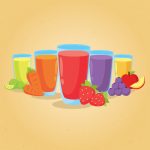 This is generally fiction. For some individuals, it’s difficult (or sometimes impossible) to eat the recommended amount of fruits and vegetables, so ingesting them in juice form occasionally can be a good option. In general, though, liquid calories typically don’t curb your appetite as well as solid foods. Plus, by juicing fruits or vegetables, you are likely removing some or all of the fiber. As a food changes form, its fiber content may change, too. For example, most of the fiber in an apple comes from the peel and pulp, so the more you remove, the more fiber you lose. A medium apple with the peel contains 4.4 grams of fiber, compared to 2.1 grams for a medium apple without the peel.
This is generally fiction. For some individuals, it’s difficult (or sometimes impossible) to eat the recommended amount of fruits and vegetables, so ingesting them in juice form occasionally can be a good option. In general, though, liquid calories typically don’t curb your appetite as well as solid foods. Plus, by juicing fruits or vegetables, you are likely removing some or all of the fiber. As a food changes form, its fiber content may change, too. For example, most of the fiber in an apple comes from the peel and pulp, so the more you remove, the more fiber you lose. A medium apple with the peel contains 4.4 grams of fiber, compared to 2.1 grams for a medium apple without the peel.
What about smoothies, you ask? I recommend making your own from frozen fruits and vegetables, and adding some low-fat milk or yogurt to give it protein and other nutrients. Be careful with store-bought juices and smoothies, as these can be a huge hidden source of added sugars (and sometimes sodium, too).
“Detoxing” or “cleansing” periodically is important. Fact or fiction?
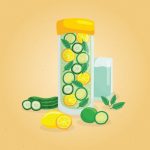 This is fiction! Detoxification (detox) diets are popular, but there is little evidence that they eliminate toxins from your body. The kidneys and liver are generally quite effective at filtering and removing most ingested toxins, so following a detox diet is not necessary. Specific diets vary, but typically a period of fasting is followed by a strict diet of raw vegetables, fruit and fruit juices, and water. In addition, some detox diets advocate using herbs and other supplements along with colon cleansing (enemas) to empty the intestines.
This is fiction! Detoxification (detox) diets are popular, but there is little evidence that they eliminate toxins from your body. The kidneys and liver are generally quite effective at filtering and removing most ingested toxins, so following a detox diet is not necessary. Specific diets vary, but typically a period of fasting is followed by a strict diet of raw vegetables, fruit and fruit juices, and water. In addition, some detox diets advocate using herbs and other supplements along with colon cleansing (enemas) to empty the intestines.
Some people report feeling more focused and energetic during and after detox diets, so how is this possible? It may be due in part to the fact that a detox diet eliminates highly processed foods that have solid fats and added sugar. Simply avoiding these high-calorie, low-nutrition foods for a few days may be why people feel better.
It’s also important to consider possible side effects. Detox diets that severely limit protein or require fasting, for example, can cause fatigue. Long-term fasting can result in vitamin and mineral deficiencies. Colon cleansing, which is often recommended as part of a detox plan, can cause cramping, bloating, nausea, and vomiting. Dehydration also can be a concern.
Most importantly, keep in mind that detox diets aren’t a good long-term solution. For lasting results, your best bet is to eat a healthy diet based on fruits and vegetables, whole grains, and lean sources of protein.
 The Daily Dose
The Daily Dose
Comments are closed.